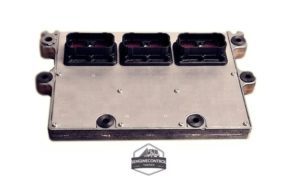Your Cummins ISX ECM has a myriad number of parts that play a crucial role in the function and overall performance of the engine. Every component is different and has its own job. However, all work in collaboration to produce the outcome you want. The ECM is the crux of the entire system of an engine. It works through directly controlling, monitoring, and regulating a vehicle’s functions. It serves as the central computer that coordinates all of the different components of an engine and enables them to work smoothly and effectively.
So, if you are to decide whether you should go for Cummins ISX ECM repair, or it is better to replace the entire unit, take time to understand its impact on your vehicle’s performance.
An overview of the ECM
The engine control module or ECM is a sophisticated computer made up of complex circuitry systems and microprocessors. These microprocessors are designed to receive a stream of information from the sensors found in the engine.
The ECM collects the data from various sensors, interprets it, and makes changes to the engine if it detects any issues. Upon receiving information from various sensors of the engine, the ECM delivers electrical commands to the fuel injectors, transmission, ignition system and camshaft position, and more.
The impact of the ECM on the engine’s performance
When you know the importance of the ECM, you will understand how it impacts the performance of your vehicle’s engine.
Fuel economy
The ECM is meant to regulate the fuel economy of a vehicle. It optimizes fuel use by controlling the engine’s idle speed, maximum road speeds, RPM, and more. It also takes into account external and internal conditions of the vehicle and makes adjustments to keep the car running as effectively as possible.
Emissions control
An engine’s ECM works to control how much tailpipe emission your vehicle is producing. A properly functioning ECM can measure the air mass flow rate and calibrate the fuel injection system. Thus, it helps to ensure that the optimum amount of fuel gets burnt.
Engine responsiveness
To maintain the optimal performance of a vehicle, the ECM makes essential changes to improve the engine’s responsiveness. It monitors the engine’s temperature, throttle position, manifold absolute pressure, and engine speed.
Using the data collected from the engine’s sensor, the ECM adds more fuel to the fuel injector when airflow mass increases. It may also warm up the engine to help it perform optimally. When the engine’s responsiveness is increased, the engine consumes less fuel. It means that the vehicle will operate at a higher performance level.
The list of potential performance issues resulting from a failed ECM is virtually endless. This is why you want to determine if the problem (you are facing with the engine) has resulted from a faulty ECM as soon as you notice it. At 1Engine Control, our expert technicians can help you diagnose and address the issue immediately at a lower cost. To know more, please get in touch!





